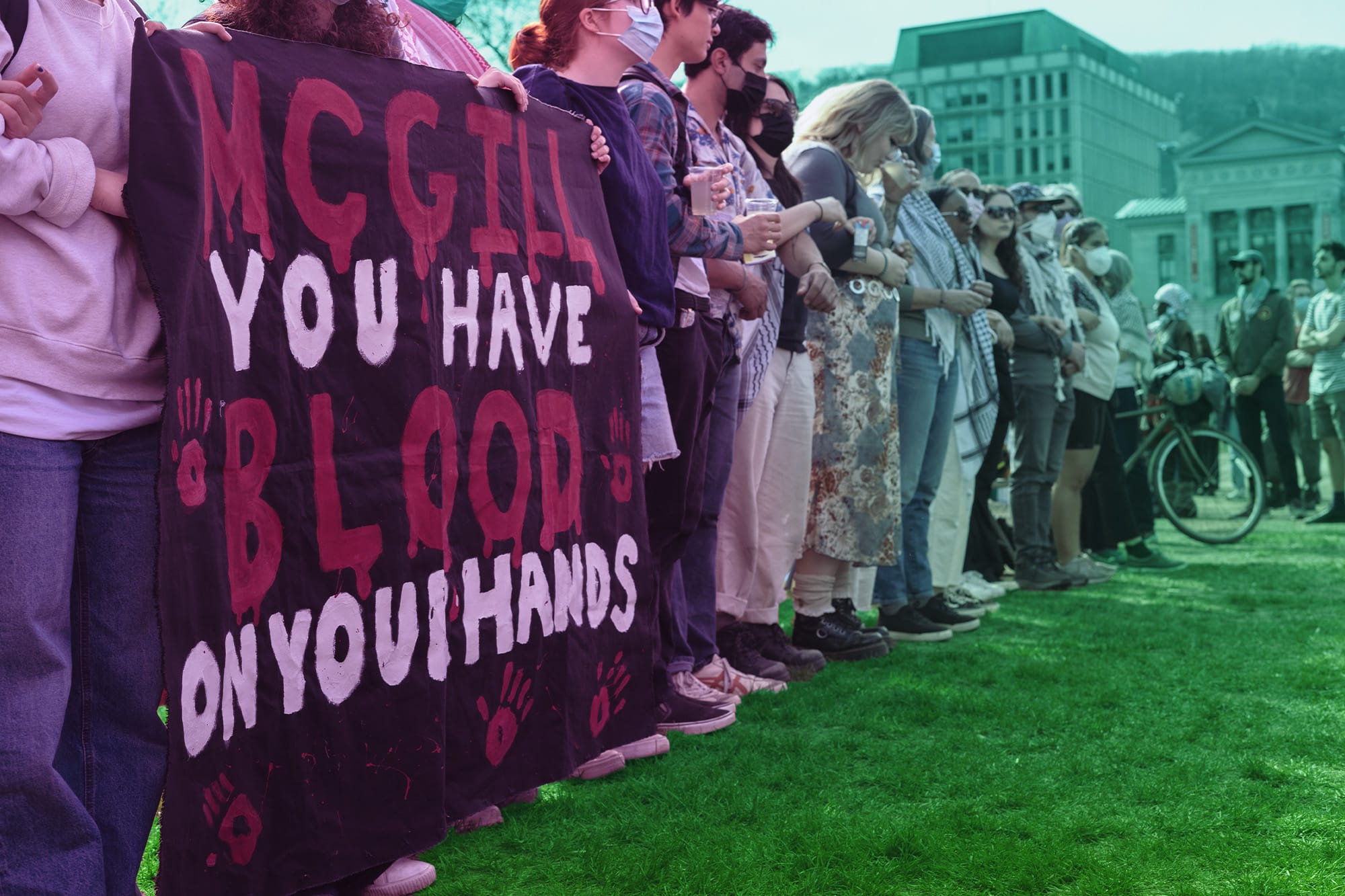For a supposed hotbed of antisemitism, the scene at McGill’s Gaza protest encampment was distinctly Jewish: giant bottles of kosher grape juice and matzah bread piled on the ground, the fixings for a Passover dinner.
On Sunday, when I visited the university’s campus, now the source of daily national headlines, a large group of students were settling in for this religious ritual.
This environment—of respect, curiosity, and support for freedom, apparent at Passover and through the rest of the camp—is what B’nai Brith claimed this week represents a “horrifying normalization of antisemitism on university campuses.”
It’s what the Centre for Israel and Jewish Affairs claimed was a “toxic” situation full of “calls for violence and antisemitic slogans.”
I witnessed no such thing.



Glad to see Canada in solidarity.
Has anyone seen reports of students in Arab countries doing this? Eg in Egypt?
Source